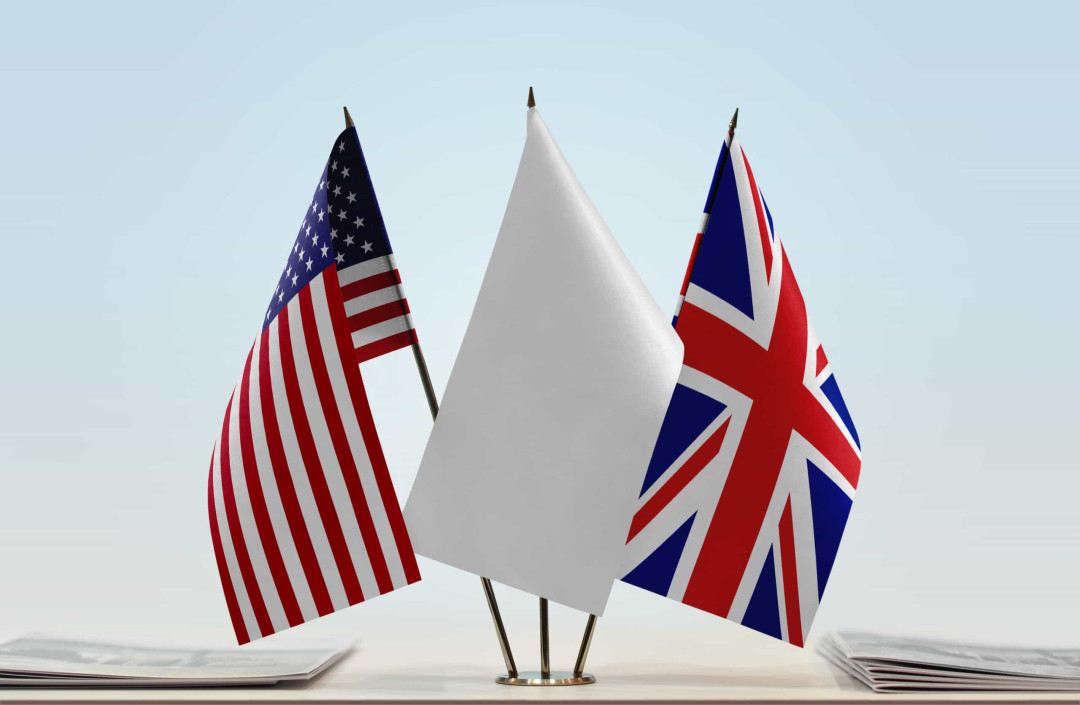



























© Shutterstock
0 / 28 Fotos
The War of Jenkins' Ear (1739-1748)
- This war between Britain and Spain lasted nine years and started because of an ear! In 1731, Spanish soldiers cut off British Captain Robert Jenkins' ear because he wouldn't let them onto his ship in the West Indies.
© Shutterstock
1 / 28 Fotos
The War of Jenkins' Ear (1739-1748)
- A few years later in 1739, the British desperately wanted to enhance their trading positions in the Caribbean region, at the expense of the Spanish. The one missing element was a trigger for conflict.
© Shutterstock
2 / 28 Fotos
The War of Jenkins' Ear (1739-1748)
- After some brainstorming, they recalled the incident in 1731 when the Spanish commander cut off Jenkins' ear, and that became their justification for war.
© Shutterstock
3 / 28 Fotos
The War of the Stray Dog (1925)
- In 1925, Greece and Bulgaria were not on good terms with each other. They stood on opposite sides in WWI, and the animosity between the two nations was undeniable.
© Shutterstock
4 / 28 Fotos
The War of the Stray Dog (1925)
- The conflict began when a Greek soldier's dog escaped and crossed into Bulgarian territory. The soldier followed his dog to try to retrieve him, and was shot and killed by the Bulgarians.
© Shutterstock
5 / 28 Fotos
The War of the Stray Dog (1925)
- The Greeks made the choice to invade and take control of Petrich, resulting in a conflict that would eventually involve 30,000 soldiers on the battlefield at its peak.
© Shutterstock
6 / 28 Fotos
The Football War (1969)
- The conflict between Honduras and El Salvador, wasn't entirely caused by a soccer game. However, it did act as a tipping point in their already tense relationship, igniting a brief war.
© Shutterstock
7 / 28 Fotos
The Football War (1969)
- In 1969, the national soccer teams of the two countries faced each other in a decisive match to secure a place in the 1970 World Cup. Despite both countries winning their respective games, El Salvador emerged victorious in the all-important third match.
© Shutterstock
8 / 28 Fotos
The Football War (1969)
- Due to the prevailing political situation, numerous Salvadoran stores and companies in Honduras were looted, resulting in severed diplomatic relations between the two countries. Subsequently, on July 14, 1969, El Salvador launched an invasion of Honduras to "protect its citizens."
© Getty Images
9 / 28 Fotos
The Football War (1969)
- In total, more than 2,000 individuals lost their lives due to the war. El Salvador experienced a defeat in all three of its matches at the World Cup, failing to score any goals.
© Getty Images
10 / 28 Fotos
The Emu War (1932)
- In 1932, Australian leaders recognized that there were excessive number of emus causing significant damage to farmers' crops, prompting the need for action to address the issue.
© Shutterstock
11 / 28 Fotos
The Emu War (1932)
- The plan was to send soldiers with machine guns, but it turned out to be a bit tricky. Those flightless birds turned out to be tougher than expected, moving fast and not giving up easily even when they got shot. So, they quickly used up all the bullets the army had.
© Shutterstock
12 / 28 Fotos
The Emu War (1932)
- After a week of "conflict," the Australian army surrendered. In total, only 2,500 out of the planned 20,000 emus were eliminated. Ultimately, the emus emerged victorious.
© Shutterstock
13 / 28 Fotos
The Pig War (1859)
- Currently, the United States and the United Kingdom have an exceptionally strong diplomatic relationship, which is historically remarkable. However, in 1859, there were still tensions between the two nations.
© Shutterstock
14 / 28 Fotos
The Pig War (1859)
- On June 15th of that same year, a stray pig caused tension between the two nations. The pig fled from American settlers in Washington state and crossed the border into Canadian territory. Meanwhile, British individuals on the other side were tending to sheep and ended up shooting the pig. Americans didn't take this well.
© Shutterstock
15 / 28 Fotos
The Pig War (1859)
- Troops from both Britain and America were stationed at the border, resulting in a four-month stand-off. Surprisingly, no shots were exchanged, resulting in only one victim—a pig.
© Shutterstock
16 / 28 Fotos
The War of the (Oaken) Bucket (1325)
- The War of the Oaken Bucket took place in 1325 between two medieval Italian states, resulting in the loss of 2,000 lives. The reason behind this conflict...
© Shutterstock
17 / 28 Fotos
The War of the (Oaken) Bucket (1325)
- According to reports, the conflict erupted when soldiers from Modena took a bucket from Bologna's well.
© Shutterstock
18 / 28 Fotos
The War of the (Oaken) Bucket (1325)
- The bucket remains on display in Modena today. In all fairness, it really is a nice bucket.
© Shutterstock
19 / 28 Fotos
The War of the Sicilian Vespers (1282-1302)
- The War of the Sicilian Vespers commenced in French-controlled Sicily in 1282 and persisted for an astounding two decades. What caused this prolonged conflict?
© Shutterstock
20 / 28 Fotos
The War of the Sicilian Vespers (1282-1302)
- The beginning of the war stemmed from speculation about an incident where a Sicilian woman was allegedly harassed by a drunk Frenchman during Easter Monday evening prayers.
© Getty Images
21 / 28 Fotos
The War of the Sicilian Vespers (1282-1302)
- The Sicilians were incredibly angered by this, leading to the alleged massacre of 4,000 Frenchmen over the next six weeks. Additional diplomatic errors extended the conflict for several more decades.
© Shutterstock
22 / 28 Fotos
The Battle of Karánsebes (1788)
- Not the beginning of a war, but the kick-off of a battle. In the year 1788, Austria found itself engaged in conflict with Turkey. After being dispatched on a scouting mission, a group of soldiers unexpectedly encountered some travelers who kindly extended an offer of alcoholic beverages. Without hesitation, the soldiers gratefully accepted.
© Shutterstock
23 / 28 Fotos
The Battle of Karánsebes (1788)
- Later on, a little worse for wear, the scouts encountered a group of their fellow Austrian soldiers. Their comrades in arms declined to share their alcohol, causing tensions to escalate. Eventually, chaos ensued after an alleged gunshot was fired.
© Shutterstock
24 / 28 Fotos
The Battle of Karánsebes (1788)
- It is still uncertain the precise count of casualties; however, trustworthy historical records affirm that no fewer than 1,000 soldiers from Austria lost their lives or suffered injuries.
© Getty Images
25 / 28 Fotos
Chincha Islands War (1864-1866)
- Known as the Spanish-South American War, this conflict involved Chili, Ecuador, Bolivia, and the Chincha Islands. Although primarily territorial, the islands held significance due to their abundant bird droppings.
© Shutterstock
26 / 28 Fotos
Chincha Islands Conflict (1864-1866)
- Thanks to the Guanay cormorants, a native bird species, the islands are very rich in guano, a fertilizer composed (among other things) of their poo. This made the islands a potentially valuable—if somewhat smelly—asset to all involved. One of the outcomes of this particular war was Spain's recognition of Peruvian independence.
© Shutterstock
27 / 28 Fotos
© Shutterstock
0 / 28 Fotos
The War of Jenkins' Ear (1739-1748)
- This war between Britain and Spain lasted nine years and started because of an ear! In 1731, Spanish soldiers cut off British Captain Robert Jenkins' ear because he wouldn't let them onto his ship in the West Indies.
© Shutterstock
1 / 28 Fotos
The War of Jenkins' Ear (1739-1748)
- A few years later in 1739, the British desperately wanted to enhance their trading positions in the Caribbean region, at the expense of the Spanish. The one missing element was a trigger for conflict.
© Shutterstock
2 / 28 Fotos
The War of Jenkins' Ear (1739-1748)
- After some brainstorming, they recalled the incident in 1731 when the Spanish commander cut off Jenkins' ear, and that became their justification for war.
© Shutterstock
3 / 28 Fotos
The War of the Stray Dog (1925)
- In 1925, Greece and Bulgaria were not on good terms with each other. They stood on opposite sides in WWI, and the animosity between the two nations was undeniable.
© Shutterstock
4 / 28 Fotos
The War of the Stray Dog (1925)
- The conflict began when a Greek soldier's dog escaped and crossed into Bulgarian territory. The soldier followed his dog to try to retrieve him, and was shot and killed by the Bulgarians.
© Shutterstock
5 / 28 Fotos
The War of the Stray Dog (1925)
- The Greeks made the choice to invade and take control of Petrich, resulting in a conflict that would eventually involve 30,000 soldiers on the battlefield at its peak.
© Shutterstock
6 / 28 Fotos
The Football War (1969)
- The conflict between Honduras and El Salvador, wasn't entirely caused by a soccer game. However, it did act as a tipping point in their already tense relationship, igniting a brief war.
© Shutterstock
7 / 28 Fotos
The Football War (1969)
- In 1969, the national soccer teams of the two countries faced each other in a decisive match to secure a place in the 1970 World Cup. Despite both countries winning their respective games, El Salvador emerged victorious in the all-important third match.
© Shutterstock
8 / 28 Fotos
The Football War (1969)
- Due to the prevailing political situation, numerous Salvadoran stores and companies in Honduras were looted, resulting in severed diplomatic relations between the two countries. Subsequently, on July 14, 1969, El Salvador launched an invasion of Honduras to "protect its citizens."
© Getty Images
9 / 28 Fotos
The Football War (1969)
- In total, more than 2,000 individuals lost their lives due to the war. El Salvador experienced a defeat in all three of its matches at the World Cup, failing to score any goals.
© Getty Images
10 / 28 Fotos
The Emu War (1932)
- In 1932, Australian leaders recognized that there were excessive number of emus causing significant damage to farmers' crops, prompting the need for action to address the issue.
© Shutterstock
11 / 28 Fotos
The Emu War (1932)
- The plan was to send soldiers with machine guns, but it turned out to be a bit tricky. Those flightless birds turned out to be tougher than expected, moving fast and not giving up easily even when they got shot. So, they quickly used up all the bullets the army had.
© Shutterstock
12 / 28 Fotos
The Emu War (1932)
- After a week of "conflict," the Australian army surrendered. In total, only 2,500 out of the planned 20,000 emus were eliminated. Ultimately, the emus emerged victorious.
© Shutterstock
13 / 28 Fotos
The Pig War (1859)
- Currently, the United States and the United Kingdom have an exceptionally strong diplomatic relationship, which is historically remarkable. However, in 1859, there were still tensions between the two nations.
© Shutterstock
14 / 28 Fotos
The Pig War (1859)
- On June 15th of that same year, a stray pig caused tension between the two nations. The pig fled from American settlers in Washington state and crossed the border into Canadian territory. Meanwhile, British individuals on the other side were tending to sheep and ended up shooting the pig. Americans didn't take this well.
© Shutterstock
15 / 28 Fotos
The Pig War (1859)
- Troops from both Britain and America were stationed at the border, resulting in a four-month stand-off. Surprisingly, no shots were exchanged, resulting in only one victim—a pig.
© Shutterstock
16 / 28 Fotos
The War of the (Oaken) Bucket (1325)
- The War of the Oaken Bucket took place in 1325 between two medieval Italian states, resulting in the loss of 2,000 lives. The reason behind this conflict...
© Shutterstock
17 / 28 Fotos
The War of the (Oaken) Bucket (1325)
- According to reports, the conflict erupted when soldiers from Modena took a bucket from Bologna's well.
© Shutterstock
18 / 28 Fotos
The War of the (Oaken) Bucket (1325)
- The bucket remains on display in Modena today. In all fairness, it really is a nice bucket.
© Shutterstock
19 / 28 Fotos
The War of the Sicilian Vespers (1282-1302)
- The War of the Sicilian Vespers commenced in French-controlled Sicily in 1282 and persisted for an astounding two decades. What caused this prolonged conflict?
© Shutterstock
20 / 28 Fotos
The War of the Sicilian Vespers (1282-1302)
- The beginning of the war stemmed from speculation about an incident where a Sicilian woman was allegedly harassed by a drunk Frenchman during Easter Monday evening prayers.
© Getty Images
21 / 28 Fotos
The War of the Sicilian Vespers (1282-1302)
- The Sicilians were incredibly angered by this, leading to the alleged massacre of 4,000 Frenchmen over the next six weeks. Additional diplomatic errors extended the conflict for several more decades.
© Shutterstock
22 / 28 Fotos
The Battle of Karánsebes (1788)
- Not the beginning of a war, but the kick-off of a battle. In the year 1788, Austria found itself engaged in conflict with Turkey. After being dispatched on a scouting mission, a group of soldiers unexpectedly encountered some travelers who kindly extended an offer of alcoholic beverages. Without hesitation, the soldiers gratefully accepted.
© Shutterstock
23 / 28 Fotos
The Battle of Karánsebes (1788)
- Later on, a little worse for wear, the scouts encountered a group of their fellow Austrian soldiers. Their comrades in arms declined to share their alcohol, causing tensions to escalate. Eventually, chaos ensued after an alleged gunshot was fired.
© Shutterstock
24 / 28 Fotos
The Battle of Karánsebes (1788)
- It is still uncertain the precise count of casualties; however, trustworthy historical records affirm that no fewer than 1,000 soldiers from Austria lost their lives or suffered injuries.
© Getty Images
25 / 28 Fotos
Chincha Islands War (1864-1866)
- Known as the Spanish-South American War, this conflict involved Chili, Ecuador, Bolivia, and the Chincha Islands. Although primarily territorial, the islands held significance due to their abundant bird droppings.
© Shutterstock
26 / 28 Fotos
Chincha Islands Conflict (1864-1866)
- Thanks to the Guanay cormorants, a native bird species, the islands are very rich in guano, a fertilizer composed (among other things) of their poo. This made the islands a potentially valuable—if somewhat smelly—asset to all involved. One of the outcomes of this particular war was Spain's recognition of Peruvian independence.
© Shutterstock
27 / 28 Fotos
History's silliest excuses for war
Some of these are really trivial..
© <p>Shutterstock</p>
War, what is it good for? Absolutely nothing. There have been many ridiculous and petty reasons to wage it throughout human history. In this gallery, we'll explain some of the most unbelievable excuses ever used to justify going to war. Stray dogs, emus, and even soccer matches have ignited violent conflicts in the past, believe it or not.
Click on to discover some of the silliest causes of war in history!
RECOMMENDED FOR YOU




































MOST READ
- Last Hour
- Last Day
- Last Week








